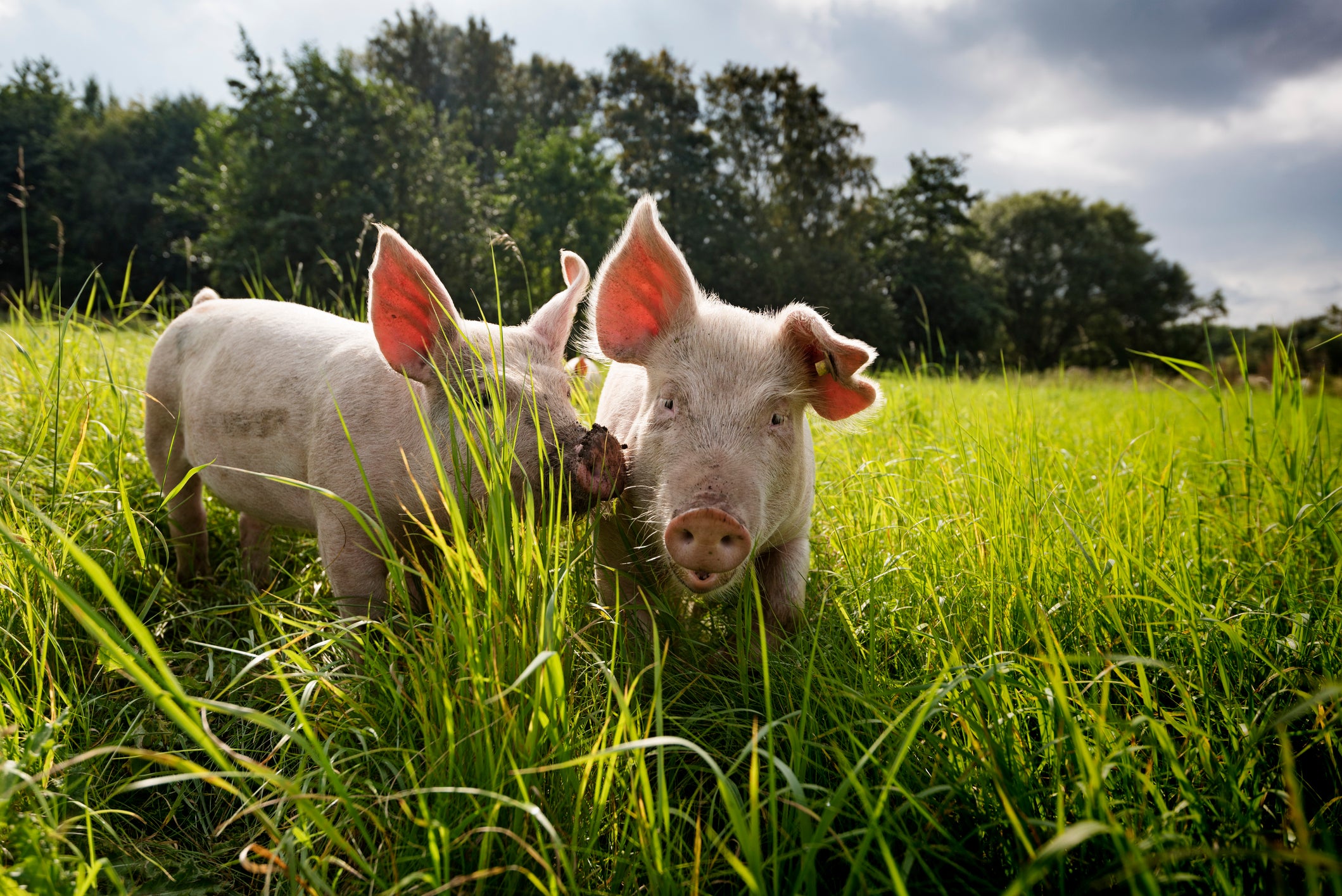Consumers want labels on meat and dairy products detailing animal welfare
‘The government should implement clear labelling to ensure consumers have this choice,’ says survey conductor

Your support helps us to tell the story
From reproductive rights to climate change to Big Tech, The Independent is on the ground when the story is developing. Whether it's investigating the financials of Elon Musk's pro-Trump PAC or producing our latest documentary, 'The A Word', which shines a light on the American women fighting for reproductive rights, we know how important it is to parse out the facts from the messaging.
At such a critical moment in US history, we need reporters on the ground. Your donation allows us to keep sending journalists to speak to both sides of the story.
The Independent is trusted by Americans across the entire political spectrum. And unlike many other quality news outlets, we choose not to lock Americans out of our reporting and analysis with paywalls. We believe quality journalism should be available to everyone, paid for by those who can afford it.
Your support makes all the difference.Consumers would like to see labels on meat and dairy products in supermarkets that would indicate how the animals were reared and slaughtered, new research has found.
According to a survey of 2,000 people commissioned by Compassion in World Farming, 68 per cent of people would welcome animal welfare labels.
Currently, the only animal product for which it is compulsory to have a label indicating animal welfare is eggs.
Today, all egg packaging must show whether or not the hens used were kept in cages.
An additional survey conducted by the National Secular Society (NSS), which was also of 2,000 people, found that 72 per cent of shoppers want labels on food to reveal how animals were slaughtered.
Stephen Evans, the NSS chief executive, said: “The public overwhelmingly considers non-stun slaughter to be less ethical, and wants labelling so they can avoid meat from animals killed by such methods.
“The government should implement clear labelling to ensure consumers have this choice.”
The Humane Slaughter Association states that every year in the UK approximately 2.6 million cattle, 10 million pigs, 14.5 million sheep and lambs, 80 million fish and 950 million birds are slaughtered for human consumption.
As for what constitutes a humane slaughter, the organisation explains: “Slaughter can be humane if an animal is protected from avoidable excitement, pain or suffering.
“To achieve this, the animal must be effectively restrained and then stunned, rendering it insensible to pain, and finally bled rapidly and profusely to ensure death before recovery could occur.
“If a stunning method does not cause instantaneous insensibility, the stunning must be non-aversive (ie must not cause fear, pain or other unpleasant feelings) to the animal.”
According to analysis of Food Standards Agency figures by the British Veterinary Association, more than 120 million animals were slaughtered without pre-stunning at abattoirs in England in the 12 months to September 2018.
Join our commenting forum
Join thought-provoking conversations, follow other Independent readers and see their replies
Comments